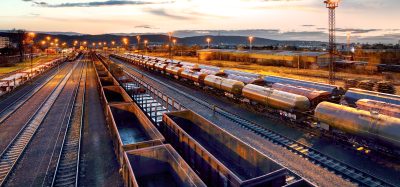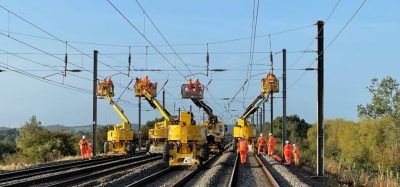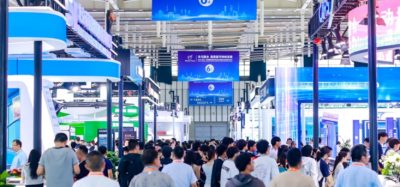Q&A with Ruth Humphrey: Leading the way for decarbonisation
Posted: 9 June 2023 | Ruth Humphrey | No comments yet
At Railtex, Ruth Humphrey, Head of Business Development and Strategy for Siemens Mobility, spoke with Global Railway Review about the importance of decarbonisation and how the rail industry can overcome the barriers of lowering carbon.
Can you give us an overview of what you’ve done at Railtex?
I was speaking at a panel in relation to decarbonisation, and therefore, I was very curious to understand what some of the suppliers who were exhibiting at Railtex were up to.
I had some interesting conversations with various suppliers. They were all in really different positions, but it was clear that decarbonisation really matters. At Siemens, we are leading the way in the UK for decarbonisation even though we’ve got a European headquarters. we are making business cases not just for the obvious of electric vehicles and solar panels, but changing the way we work, localising more of the supply chain
PPE suppliers were explaining to me which parts of PPE were actually recyclable. I learned that the challenge for everyone, is that the reflective strips on jackets are the only piece of the jackets that you can’t recycle. So that was really interesting and there’s certainly an opportunity there for someone!
Others took the view of we’re just a distributor, there’s not a lot we can do. The impression I received was that until it became a commercial requirement in a tender, they wouldn’t take too much notice. But, there’s definitely been a shift from where people were three or four years ago.
Can you talk about the importance of decarbonisation in the rail industry?
Decarbonisation is important to the country, not just in the rail industry. Rail is acknowledged as being the lowest carbon emitting sector in transport. Consequently, people ask why bother doing more? But actually, if we can be still lower carbon, and in particular, if we can get more people to use rail, and make that shift from road to rail, we will reduce our carbon emissions, reduce traffic jams and improve the environment.
What positives have you seen at Railtex related to decarbonisation?
For me, one of the greatest positives is suppliers talking about circular economy and knowing what it actually means. It’s moved on from just recycling and putting the plastic bottles in the right box. Suppliers are now offering solutions to customers because they want to, not because they’re obliged to.
Some of the more forward-looking suppliers were putting forward ideas, know that it matters, and know it matters morally as well as commercially. The change is drastic, and I’m hoping that we’ll continue to push forward in that way. Certainly, as a major supplier in the rail industry, we can see that it’s essential going forward and we are looking to support our supply chain to progress as well.
During my panel, the panelist from Network Rail said they’re encouraging all their suppliers to have science-based targets, which we already have. But we are also working with our suppliers to try to help them decarbonise their operations. Because, just like Network Rail, over 90% of our carbon emissions actually sit in the supply chain.
In your opinion, what are some of the biggest barriers when it comes to meeting decarbonisation targets? How can rail overcome these barriers?
One of the barriers is cost. The easy wins have already been progressed, but solar panels, for instance, cost money. It’s a 10-15 year investment.
On the wider scale, there’s debate ongoing in the railway industry about the cost of electrifying. I think everyone accepts that, in an ideal world, electrifying the railways and having electric trains is the best solution from an environmental, comfort and maintainability perspective. But the upfront investment is significant.
We need to look at the whole life value not just the upfront capital costs. Admittedly, there is a shift towards that, but it’s slow. Clearly with the cost-of-living crisis we currently have in the UK, the government has difficult decisions to make. Do they invest in railways or a hospital, or do they build new schools?
I think another barrier is behavioural change. People have become very comfortable sitting in their cars. The legislation put forward by the UK Government banning the sale of combustion engines from 2030, may see people thinking now I have a green car, why do I need to travel by rail? We need to persuade the public that buying lots of electric cars isn’t necessarily a solution. Actually, going by rail is a great alternative.
We, as an industry, have to do a lot more. First and foremost, we must do everything possible to make sure that the trains run reliably. If we can’t, we need to improve passenger information to ensure that people know what is going on, and what the options are.
The final barrier for me is the lack of certainty in the supply chain. There’s very much a stop start approach, whether it’s rolling stock procurement, electrification, and so on. The panelist from GBRTT referred to the long-term strategy for rail earlier in the panel; if that strategy provided that long-term certainty, as opposed to things being procured in five year cycles, suppliers would have more confidence to be able to invest in technologies.
We’re not saying that we want guarantees that we’re going to win work. That’s not what any supplier is saying. They just want a guarantee that work will be there, and if they tender for it and it’s the right conditions and the right price they will be successful. That’s what’s currently missing.
Can you tell us about any Siemens decarbonisation projects?
One of the very big projects that we’re currently working on is in Egypt, where we recently signed a contract for a new high-speed rail network, approximately 2,000km across Egypt, which will transform how the Egyptians travel.
It will reduce carbon emissions by 70% compared to the existing car and bus transport, which is significant for a population of that size. The government’s taking a visionary approach, in terms of replacing the rolling stock and introducing electrification all at the same time. This truly is an exciting project.
Another project is in Denmark, where the Danish Government are pushing forward a rolling programme of electrification – something we have been asking for in England for many years now. We are delivering that over a 10-year period, using Siemens catenary system (SiCat) demonstrating that electrification can be cost effective, and that a long-term rolling programme is best way to deliver electrification.
And then in the UK, we are currently building a factory in Goole, East Yorkshire. When it opens in 2024, it will be carbon neutral in operation. The first fleet to built there will be the new Piccadilly Line trains. These trains consume 20% less energy than their predecessors, even though they are air-conditioned. This is achieved through a combination of lighter trains with regenerative braking, cutting edge traction systems as well as LED lighting.









